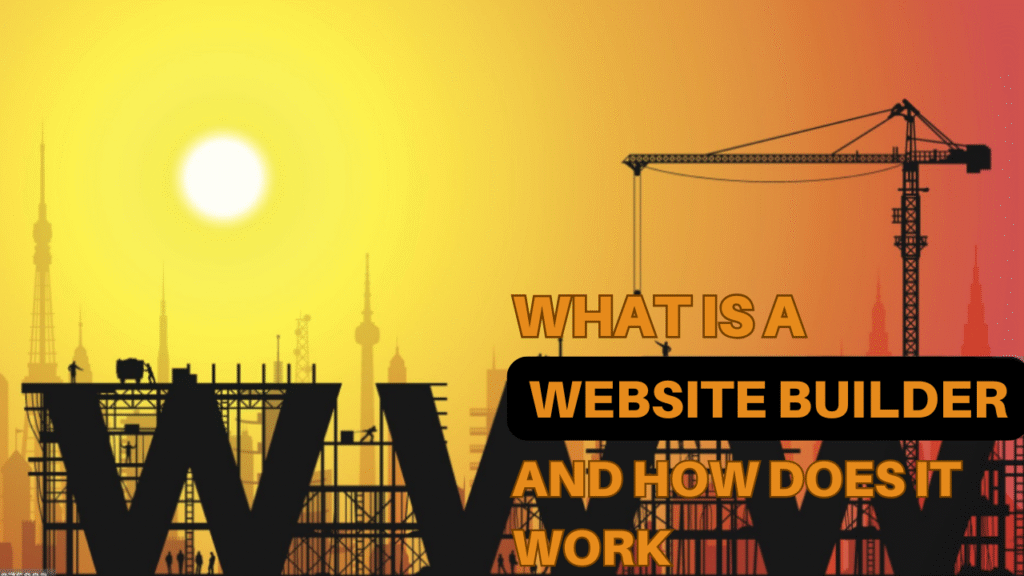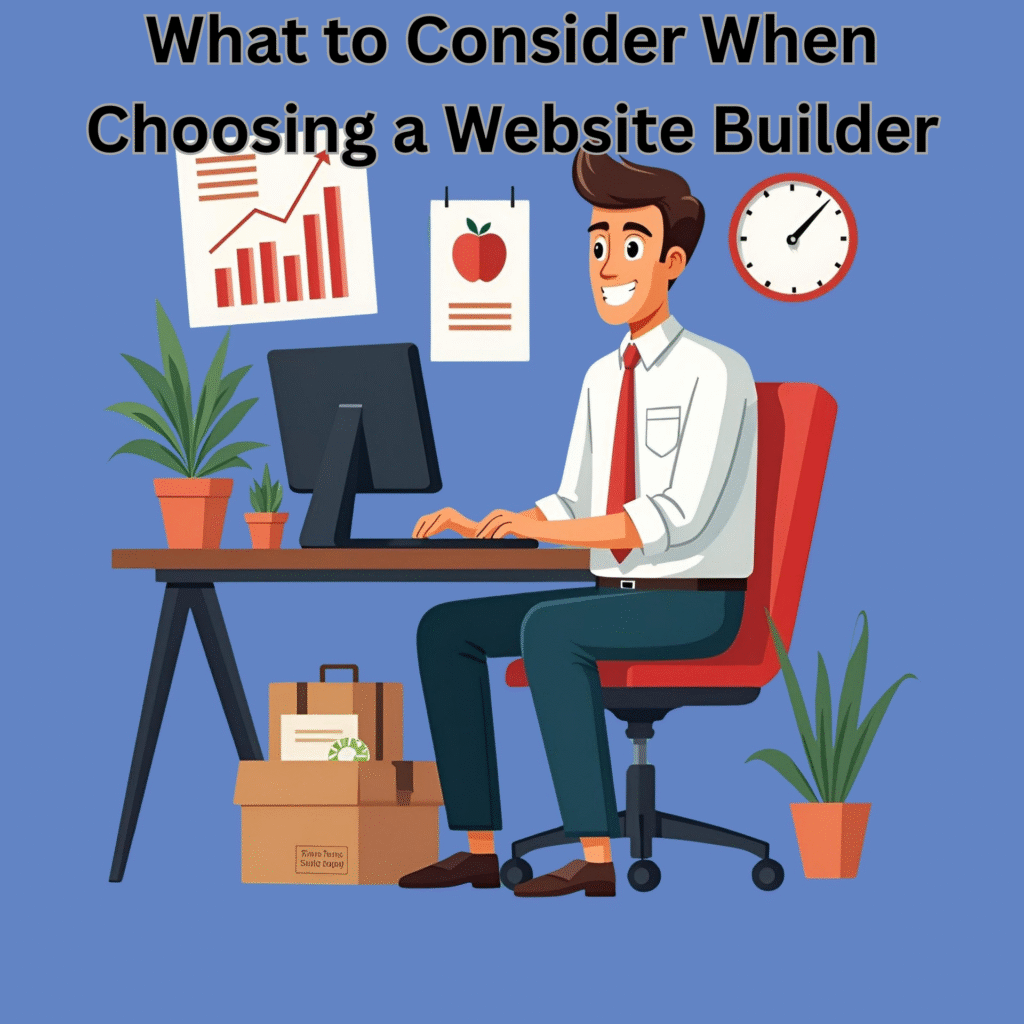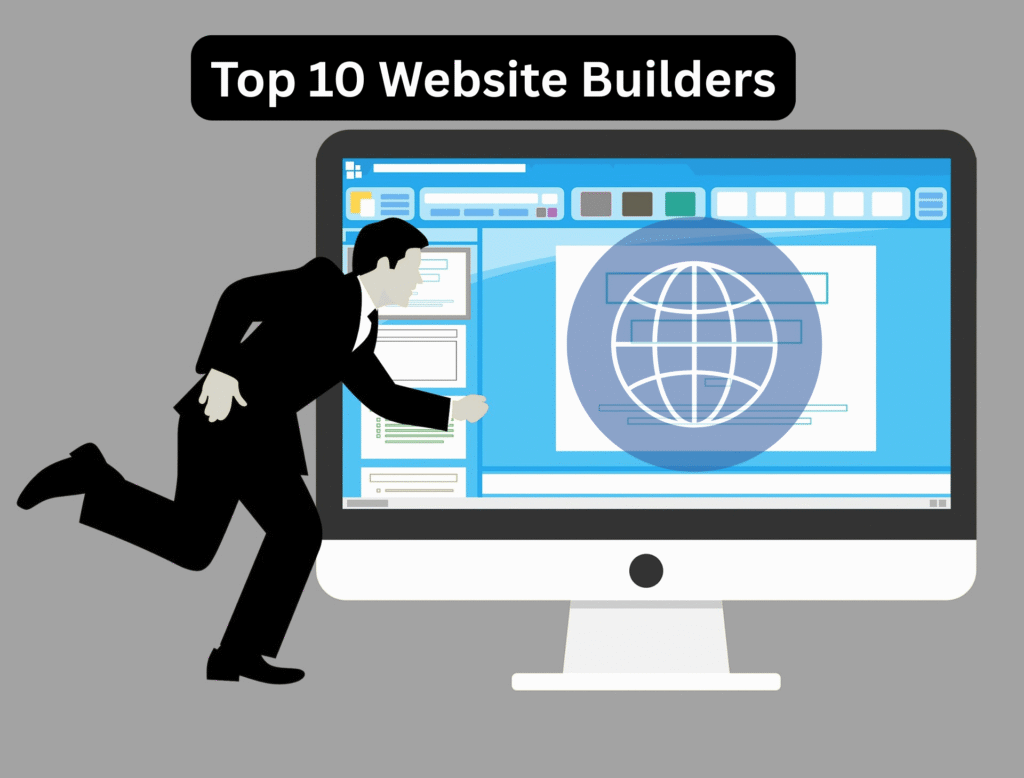Establishing a strong online presence has become the main ingredient every business needs to succeed nowadays. You might be planning to launch a personal blog, a professional business site, or a full-scale eCommerce store, choosing the right website builder is the foundation for your success.
Read: 8 Most Effective Tactics to Optimize Online Presence for Businesses
Thanks to the rapid evolution of web technologies, modern website builders have embraced AI-powered design tools, built-in SEO optimization, and drag-and-drop simplicity, making it easier than ever to build professional websites without needing to write a single line of code. As a result, the demand for user-friendly platforms has soared, especially among freelancers, startups, small businesses, and content creators.
In this comprehensive guide, we’ll explore the top 10 website builders for 2025—the platforms that stand out for their ease of use, customization options, affordability, and robust features. By the end of this article, you’ll know exactly what a website builder is, what features to prioritize, where to get started, and which platforms are best suited for different goals, whether you’re building a simple portfolio or launching a full-fledged online store.
What Is a Website Builder and How Does It Work?

A website builder is a software tool or online platform that allows users to create websites quickly and easily, without requiring any knowledge of web development or programming languages. These platforms typically provide pre-designed templates, customizable layouts, and intuitive visual editors that let users add, drag, and arrange content elements such as text, images, forms, and videos.
Most website builders also come with built-in hosting services, which means you don’t have to worry about securing separate web hosting or setting up domains manually. Everything is streamlined into one dashboard—from designing your site to publishing it online.
Depending on your specific goals and the nature of your project, a website builder can serve as a powerful foundation for a wide range of online ventures. For instance, if you’re looking to launch an e-commerce website, a modern website builder can help you create a fully functional online store. These platforms often include features that allow you to easily upload and manage product listings, set pricing, and organize inventory.
More advanced builders also offer integrated payment gateways, enabling you to accept online payments through services like PayPal, Stripe, or direct card processing. Many even support automated order fulfillment, shipping calculations, and customer tracking, streamlining the entire sales process for store owners.
If your goal is to share your personal story, showcase creative work, or publish regular content, a website builder can help you develop a visually appealing personal website or blog. These types of sites often focus on aesthetics and usability, making it easy to highlight photography, writing, videos, or design portfolios.
With customizable templates, you can craft a site that reflects your personality, brand, or interests. You’ll also find blogging tools, social media integrations, and analytics to help you grow an audience and track your content’s performance over time.
For business owners, website builders are invaluable in creating professional websites that accurately reflect their brand identity and effectively communicate key offerings.
A business website built with a drag-and-drop builder can include essential components such as detailed service pages, contact forms for customer inquiries, online booking systems for appointments or reservations, and even live chat or helpdesk widgets for real-time support.
Some platforms also include built-in CRM tools, email marketing options, and analytics dashboards to help you convert visitors into paying customers and scale your business online.
Whether you’re selling products, building a personal brand, or offering professional services, website builders in 2025 offer the versatility, ease of use, and advanced functionality needed to bring your vision to life on the web.
What to Consider When Choosing a Website Builder in 2025

Choosing the right website builder in 2025 goes beyond flashy templates. With so many options on the market, it’s important to evaluate your long-term goals and pick a platform that aligns with your needs.
#1. Ease of Use is critical for beginners. Platforms like Wix and Squarespace are ideal for users who want to launch a site quickly using a drag-and-drop editor. For users who prefer more control and are comfortable with plugins or light coding, WordPress.com or WooCommerce might be more suitable.
#2. Customization and Design Flexibility are also important. Look for platforms that allow you to fine-tune your layout, color schemes, fonts, and branding elements. Some website builders even let you add custom code or integrate third-party apps for enhanced functionality.
#3. SEO and Marketing Features are essential in helping your website rank on search engines and attract the right audience. The best website builders offer SEO tools like meta tag editing, schema markup, XML sitemaps, and integrations with tools like Google Analytics and Facebook Pixel.
#4. E-commerce capabilities are a must for online sellers. If you’re building a store, look for features like product inventory management, integrated payment gateways (such as PayPal, Stripe, and Apple Pay), cart abandonment tools, and multi-channel selling.
#5. Pricing and Plans vary widely. While some platforms offer free starter plans, serious businesses often need premium subscriptions to unlock advanced features, connect a custom domain, or remove branding ads.
#6. Customer Support should not be overlooked. Whether it’s 24/7 live chat, email support, or knowledge base tutorials, having access to support can make a huge difference, especially when launching your first website.
Where to Access Website Builders
There are two main places to find website builders:
Official Websites: Brands like Wix, Shopify, Squarespace, and BigCommerce host their builders on their websites. You can sign up, choose a template, and begin creating your site immediately.
Through Hosting Providers: Some hosting companies like Bluehost, Hostinger, and IONOS bundle free or custom website builders with their hosting packages. This is a great way to get hosting and site creation tools in one cost-effective plan.
Top 10 Website Builders for 2025

After thorough analysis, user feedback, and industry trends, here are the top 10 website builders for 2025, ranked by their performance, features, scalability, and user satisfaction.
#1. Wix
continues to lead the pack in 2025, especially for users who prioritize design flexibility. With over 800 professionally designed templates, a highly intuitive drag-and-drop editor, and built-in SEO tools, Wix empowers creators, small business owners, and freelancers to launch a visually stunning website with minimal effort. While it’s not the most scalable option for enterprise-level businesses, it’s perfect for personal projects, blogs, and small eCommerce ventures.
#2. Shopify
remains the top choice for serious eCommerce entrepreneurs. With powerful backend tools, seamless payment integration, and multi-channel selling features (including Facebook, Instagram, and TikTok), Shopify allows you to scale your online store efficiently. While advanced features come at a higher price, the ROI is unmatched for businesses focused on sales growth and global reach.
#3. Square (formerly Weebly)
offers the perfect solution for small, local businesses that already use Square for POS transactions. Its website builder syncs effortlessly with Square’s payment and inventory systems, making it an excellent choice for physical stores expanding online. While it lacks the design depth of Wix or Squarespace, it gets the job done for straightforward business websites.
#4. BigCommerce
It is built for businesses that mean business. With robust tools designed for enterprise-level eCommerce, including API access, advanced SEO features, and B2B selling options, BigCommerce is best suited for large online retailers or wholesalers. The learning curve may be steeper, but the functionality is top-tier for serious sellers.
#5. WooCommerce,
Built on WordPress, it is an open-source platform that gives users complete control over their store. It’s ideal for developers or businesses that want total customization, flexible plugin support, and control over hosting and security. However, it does require a bit more technical know-how compared to plug-and-play builders.
#6. Squarespace
Continues to be the go-to for creatives and visually-driven brands. Known for its sleek templates and modern aesthetics, it’s perfect for photographers, designers, bloggers, and service-based professionals. While not as powerful for eCommerce as Shopify or BigCommerce, Squarespace offers enough tools to manage a small online store.
#7. 1&1 IONOS
It is gaining popularity among small businesses thanks to its affordability, quick setup, and simple interface. It offers a built-in store builder, basic SEO tools, and various templates designed to help new businesses get online fast. Though it doesn’t have the extensive app integrations of other platforms, it excels in simplicity and value.
#8. WordPress.com
It is ideal for bloggers and content creators who want a streamlined, SEO-friendly website. It comes with powerful writing tools, categories, tags, and scheduling options, making it the top choice for content-first websites. While it can support eCommerce with plugins, it shines brightest when used as a platform for storytelling and thought leadership.
#9. Network Solutions
provides a no-frills website builder with straightforward eCommerce tools for small online stores. It may not win awards for aesthetics or customization, but it delivers reliable hosting, basic design options, and an affordable pricing structure—perfect for budget-conscious users.
#10. Shift4Shop (formerly 3dcart) rounds out the list as a full-featured eCommerce platform built for growing businesses. With advanced selling tools, abandoned cart recovery, built-in SEO, and multiple payment integrations, it’s a solid choice for mid-sized stores looking for power and scalability without the Shopify price tag. While it’s less intuitive for beginners, the feature set makes up for the learning curve.
Conclusion: Website Builders in 2025
The landscape of website builders in 2025 offers something for everyone—from drag-and-drop simplicity for beginners to high-powered platforms for professional developers and online retailers. Whether you’re creating a blog, showcasing your portfolio, launching a business, or scaling an e-commerce empire, there’s a platform perfectly tailored to your goals.
Also read: 10 Great Ways to Boost Your Business Visibility
Website builders offer numerous benefits: they’re easy to use, cost-effective, and packed with SEO and marketing tools to help you grow your online presence. However, you should also be aware of potential limitations, such as reduced customization on lower-tier plans, limited control over hosting, and extra fees for premium features or plugins.
Ultimately, the best website builder is the one that aligns with your technical skill level, budget, and business vision. Take advantage of free trials, explore demo sites, and read reviews before committing. In 2025, building your dream website has never been easier—or more important.


